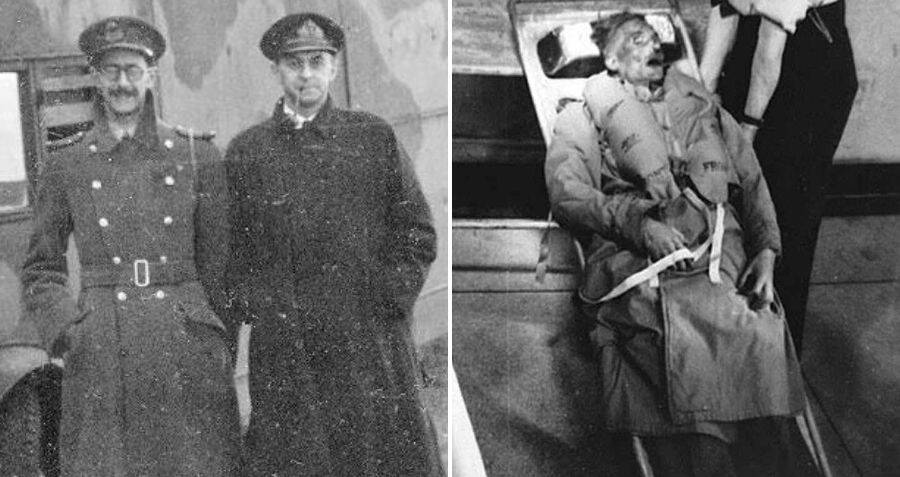The Great Deception: How Operation Mincemeat Fooled the Nazi
During World War II, the British intelligence service embarked on a daring and bizarre covert mission that has since become known as Operation Mincemeat. The plan was to deceive the German high command into thinking that the Allies would be launching an attack on Greece and Sardinia, when in fact the real target was Sicily.
The man behind the operation was Ewen Montagu, a spymaster who devised a plan that involved using the body of a dead tramp, dressed as a British officer, to plant fake documents that suggested an imminent invasion of Greece and Sardinia. The body was then allowed to wash up on the shore of Spain, which was a neutral territory but had close ties to Germany.

The hope was that the Germans would find the fake documents and be convinced of the planned invasion, diverting their resources and attention away from the true target. The plan worked, and Operation Mincemeat is now regarded as one of the greatest coups of the war. But how was this plan executed, and what made it so successful?
The Plan: A Bizarre and Ingenious Idea
The idea behind Operation Mincemeat was both bizarre and ingenious. It involved using the body of a dead tramp, dressed in a British officer’s uniform, and planting fake documents on him that suggested an imminent invasion of Greece and Sardinia. The body was then allowed to wash up on the shore of Spain, where it would be found by German intelligence agents.
The plan was risky, as there was a chance that the Germans might see through the deception and realize that the documents were fake. But Montagu believed that the plan was worth the risk, and the British government agreed to give it a try.

The fake soldier, William Martin, was actually the corpse of a Welsh drifter named Glyndwr Michael. Photographed, here, however, is M15 agent Ronnie Reed.
The Execution: A Flawless Operation
The execution of Operation Mincemeat was flawless. The body of the dead tramp was found by Spanish fishermen and taken to the local authorities, who notified the German intelligence service. The Germans fell for the ruse and diverted their resources and attention away from Sicily, which was the true target of the Allied invasion.
The success of the operation was due to several factors, including the careful planning and execution of the plan, the ingenuity of the fake documents, and the willingness of the British government to take a risk. But perhaps the most important factor was the bravery and dedication of those involved in the operation, who risked their lives to ensure its success.

Robert Flemyng, who played Lt. George Acres, and Clifton Webb, who played Montagu, during a scene from The Man Who Never Was, a 1956 film based on the exploits of Operation Mincemeat.
The Legacy: A Testament to Bravery and Ingenuity
The legacy of Operation Mincemeat is a testament to the bravery and ingenuity of those involved in British intelligence during World War II. The plan was a daring and risky one, but it ultimately helped to save the lives of thousands of Allied soldiers by diverting German resources away from the true target of the invasion.
The success of the operation has also inspired countless books, movies, and TV shows, and has become a symbol of British ingenuity and resourcefulness during World War II. It is a reminder that even in the darkest of times, there is always hope, and that with courage and determination, anything is possible.
The Deathbed Wish: Maggie Grants Ewen Montagu’s Request
In 1984, Ewen Montagu, the spymaster behind Operation Mincemeat, was on his deathbed. He wrote to British Prime Minister Margaret Thatcher asking to read the still-secret official verdict on the mission. Thatcher granted his request and authorized the release of the file, saying that she was “content” for it to be made public.

The release of the file confirmed the success of Operation Mincemeat and provided further insight into the planning and execution of the mission. It also served as a reminder of the bravery and dedication of those involved in the operation, and the risks they took to help win the war.
The release of the file was a fitting tribute to Montagu, who had dedicated his life to serving his country and had played a key role in one of the most daring and successful covert missions of the war. It was also a reminder of the importance of intelligence gathering and covert operations in times of war, and the bravery of those who risk their lives to carry them out.
Legacy of Operation Mincemeat: Honoring the Bravery and Resourcefulness of WWII’s Covert Heroes
Operation Mincemeat was a daring and risky operation that helped to save the lives of thousands of Allied soldiers during World War II. The plan was executed flawlessly, thanks to the ingenuity and bravery of those involved, and it has since become a symbol of British resourcefulness and determination in times of war.
The release of the still-secret official verdict on the mission, granted by British Prime Minister Margaret Thatcher, provided further insight into the planning and execution of the operation and served as a reminder of the bravery and dedication of those who risked their lives to carry it out.
Operation Mincemeat will always be remembered as one of the greatest coups of the war, and a testament to the courage and resourcefulness of the men and women who served their country during its darkest hours.
